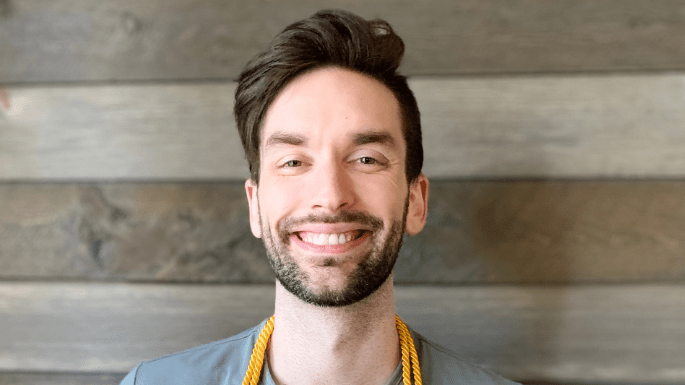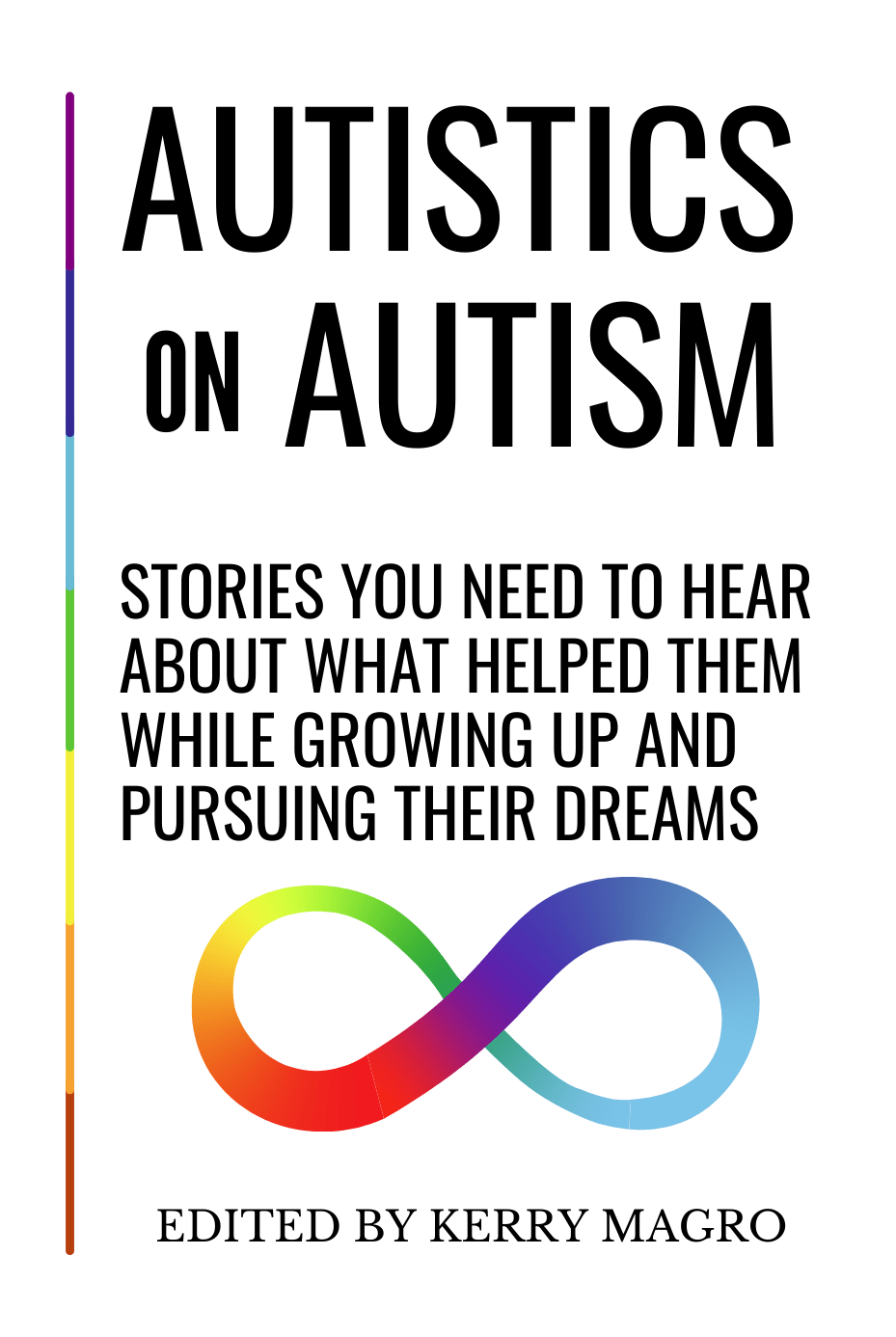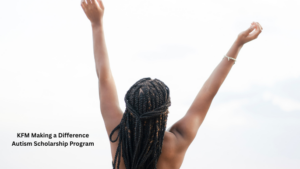This guest post is by Chris Lewis, a man who was diagnosed with autism at 14 years old and has been accepted into Pacific Lutheran University. Chris is applying for the Spring 2023 Making a Difference Autism Scholarship via the nonprofit KFM Making a Difference started by me, Kerry Magro. I was nonverbal till 2.5 and diagnosed with autism at 4, and you can read more about my organization here. Autistics on Autism: Stories You Need to Hear About What Helped Them While Growing Up and Pursuing Their Dreams, our nonprofit’s new book, was released on March 29, 2022, on Amazon here for our community to enjoy featuring the stories of 100 autistic adults.
Seeing the world through the prism of any ordinary being is a concept for which all humans share. We are unified by our ability to understand and perceive the needs of our fellow men and women and to accommodate each other’s desires through our intrinsic propensity towards altruism and empathy. In fact, this process is so natural that it is often taken for granted and it would seem that one could not fathom finding impasse in such trivial concepts. But with all things in life, there indeed exist exceptions and my story as someone diagnosed with Autism Spectrum Disorder (ASD) could not be a more paragon example of this parable.
Growing up, it seemed like everyone around me could form bonds and communicate with one another seamlessly. The process by which my friends, family and co-workers were able to read one another, adjust dialogue for context and in an almost clairvoyant manner, perceive non-verbal cues, was both astounding and perplexing to me, as it all seemed so intrinsic and unconsciously preordained to them. And yet I found such naturally occurring process to be missing from my social faculties.
The absence of unconscious sentience to the thoughts and feelings of others and the nebulous ways in which they are communicated without use of words, would end up making the early years of my life very difficult. From childhood, up until the end of high school, my peers tended to view me as strange, obtuse, and even annoying, resulting in exile from social circles and relentless bullying. Even my own family would project similar criticism towards me, to the point where I would often be unjustly punished for things that I had no control over. Because of this, I had very few friends growing up, developed severe social anxiety, and would often isolate to my room, where over the years, I procreated my own ivory tower of acceptance and love within the realm of fantasy (videogames and cartoons). All of this culminated in my connection with the real world becoming more and more distant, to the point where I would intentionally avoid forming relationships with others and hide within my own delusional thinking in order to maintain my deluded semblance of belonging and control within my life.
Despite my social repression, elusion of contact with others and lulling myself into a false reality where I felt at peace with the world, I struggled with crippling lonesomeness, a distorted sense of identity and profound feelings of sadness and grief. Truthfully, I longed for connection with others and that I couldn’t understand why I seemed incapable of fostering said connections spawned feelings of inadequacy of unfathomable proportions. This would go on for many years, driving me into a deep depression and leaving me to wonder if I would ever be able to experience connection of any kind, with anyone.
It wouldn’t be until the age of 19 that the sterile and static proclivities of my existence would become unbearable, thus I ultimately made the decision to step out of my deluded plane of reality and begin the long and arduous process of learning to communicate and connect with others. I knew that the road ahead of me was difficult and as one could imagine, having to learn processes of which are naturally occurring in everyone else was quite foreboding, but none so much as the concept of empathy. Entomologically speaking, the Greek origin of the word “autism” literally translates to “a state of being oneself”. This definition could not be a more paragon synonym for one of the most perplexing throes of living with ASD, as people with ASD are inherently apathetic by our own proclivities, and therefore, not programmed to be able to see the world through the prism of another human being.
Given the aforementioned, I more a less had to learn to emulate empathy through extensive study of body language, vocal intonation, and social dialogue. I would then spend vast amounts of time practicing interpersonal communication with others, closely monitoring the body language and verbiage of those whom I spoke with, and then taking note of what matched the principles that I had studied and while not perfect, it allowed me to begin the process of fostering the most elementary of connections with my peers.
It would be when I enrolled into university that my social skills would flourish and prosper. Given that many of my college projects required collaboration with others, I learned to be particularly socially keen, both interpersonally and professionally, so as to ensure that my colleagues could depend on me to play out my part in our assignments. I also began to become more involved in social circles, which allowed me to further expand upon my ability to be empathic and read body language. My experiences during nursing school would also further refine my social skills, requiring me to take what I had learned at that point in time and refine it in manner that allowed me to disseminate between what was urgent and non-urgent and communicate information in swift and concise manner.
As of today, I can say with impunity that I have become proficient in communicating and fostering connections with others and have developed the aforementioned social skills that were once so nebulous and obscure to me. But more importantly, the unique challenges that I overcame as someone living with ASD also helped me to realize that one truly is capable of achieving anything in life, regardless of their impasses. As the proverbial aphorism goes, one can view their glass as half full or half empty, but in my case, I’ve learned to be happy with merely having a glass to begin with and how full or empty it is, or becomes, is entirely up to me. In other words, regardless of ones disability or level of social or cognitive capacity, anything is possible, so long as they have the will and desire to achieve!
Follow my journey on Facebook, my Facebook Fan Page, Tiktok, Youtube & Instagram.
My name is Kerry Magro, a professional speaker and best-selling author who is also on the autism spectrum. I started the nonprofit KFM Making a Difference in 2011 to help students with autism receive scholarship aid to pursue post-secondary education. Help support me so I can continue to help students with autism go to college by making a tax-deductible donation to our nonprofit here.
Autistics on Autism: Stories You Need to Hear About What Helped Them While Growing Up and Pursuing Their Dreams was released on March 29, 2022 on Amazon here for our community to enjoy featuring the stories of 100 autistic adults. 100% of the proceeds from this book will go back to our nonprofit to support initiatives like our autism scholarship program. In addition, this autistic adult’s essay you just read will be featured in a future volume of this book as we plan on making this into a series of books on autistic adults.















